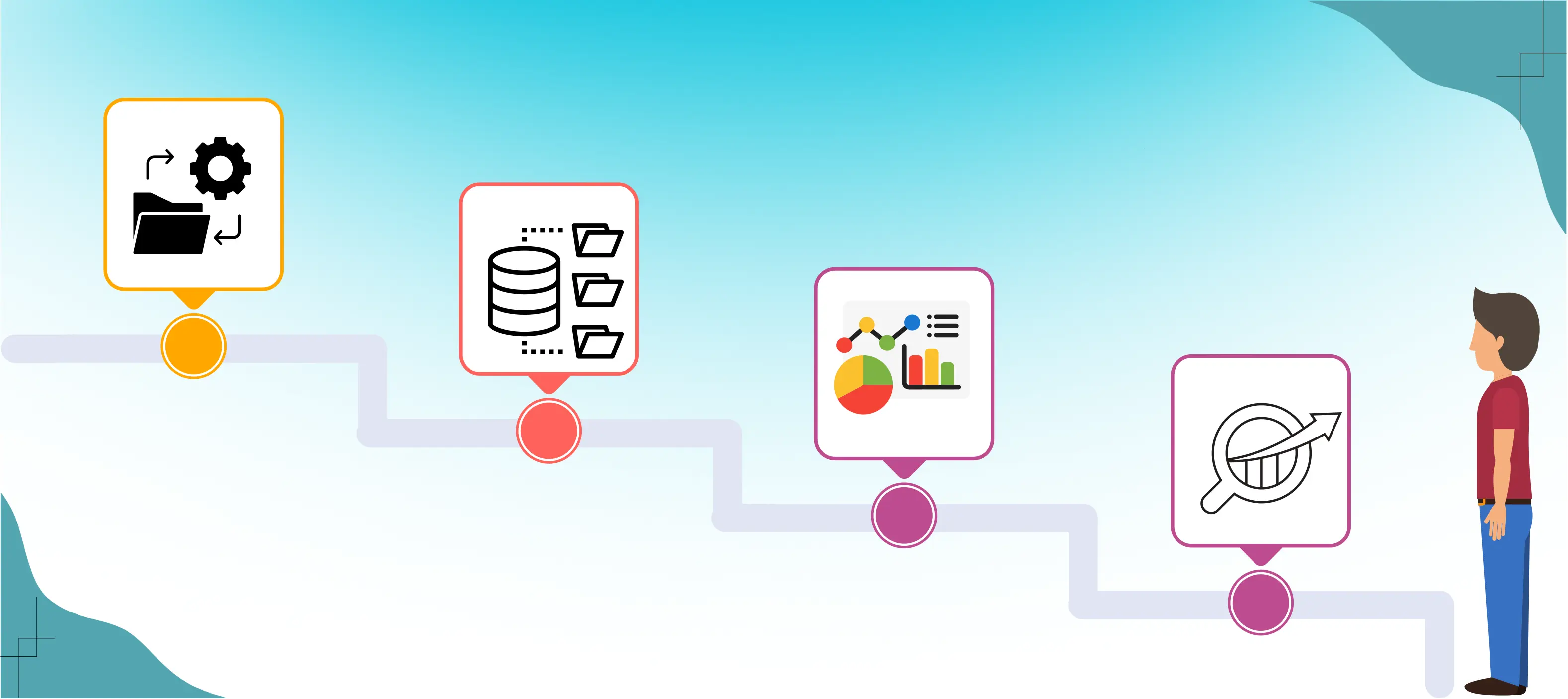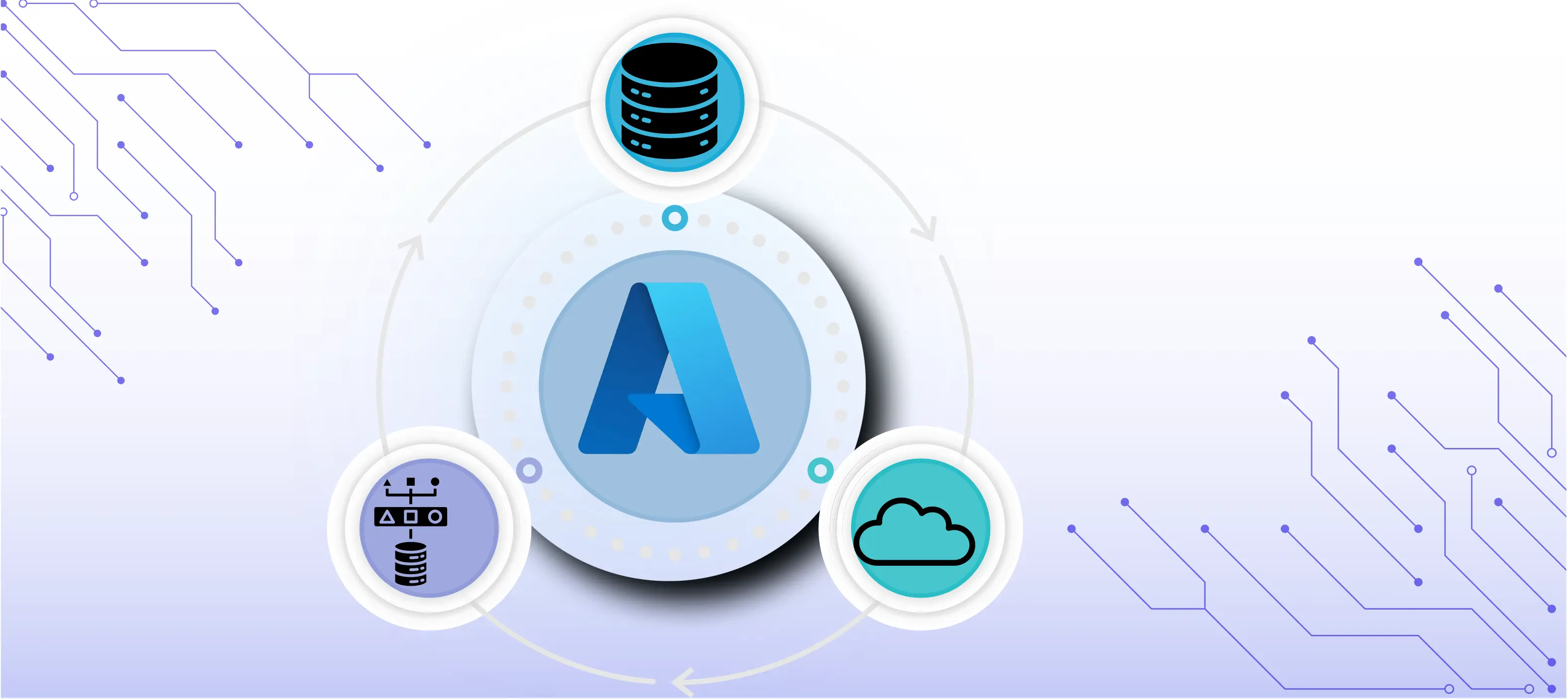Data Engineering Reinvented Navigating the AI Frontier
Updated on 21th July, 2024
190k views

10 min Read
Introduction

As artificial intelligence (AI) continues to advance and permeate various industries, including data analytics and management, questions arise about its potential impact on traditional roles like data engineering. Data engineering is a crucial discipline. To enable the processing, storage, and retrieval of data for analytics and AI applications, well-designed infrastructure and robust systems are essential. This post will explore the intricate relationship between data engineering and AI. Additionally, we'll investigate the potential impact of AI on data engineering, pondering whether it may eventually replace certain aspects in the near future.
The Synergy between Data Engineering and AI
Data engineering and AI are inherently interconnected, with data engineering serving as the foundation for AI initiatives. AI algorithms rely on vast amounts of data to learn, generalise, and make predictions or decisions. Data engineers have the vital responsibility of collecting, storing, cleaning, and preparing data. They ensure that this data remains accessible, reliable, and well-suited for AI models. In this way, data engineering provides the fuel that powers AI applications.
Enhanced Data Engineering Processes
While AI is undoubtedly transforming the landscape of data analytics, it is more likely to augment rather than replace data engineering functions. AI technologies can significantly enhance data engineering processes by automating repetitive tasks and optimising various operations. For instance, AI-powered data integration tools can automate the extraction, transformation, and loading (ETL) processes, reducing manual effort and accelerating data pipelines.
Advanced Data Preparation and Cleansing
Data preparation and cleansing are labour-intensive tasks that consume a substantial portion of data engineering efforts. AI-based algorithms and machine learning techniques can improve data cleansing by identifying and rectifying inconsistencies, duplicates, and missing values. By automating data cleansing, data engineers can focus on more complex tasks, such as designing data architectures and optimising data flows.
Intelligent Data Storage and Retrieval
AI can also optimise data storage and retrieval mechanisms, facilitating faster access to large datasets. AI-driven techniques like data indexing, caching, and compression can improve the efficiency of data retrieval and reduce storage costs. By enabling data engineers, this allows them to build a robust and scalable data infrastructure that can effectively handle the ever-increasing amount of data.
AI for Data Governance and Security
Data governance and security are critical aspects of data engineering. AI plays a crucial role in monitoring data access, detecting anomalies, and mitigating potential security threats. This advanced technology ensures vigilant protection against unauthorised access and proactively identifies any machine learning algorithms that can identify unusual data patterns indicative of unauthorised access or breaches, enhancing data security measures. Moreover, AI-powered tools can enforce data governance policies and ensure compliance with regulatory requirements.
Data Pipeline Optimization
Data engineers design complex data pipelines to orchestrate the flow of data from various sources to destinations. AI-based algorithms can analyse historical data usage patterns and optimise data pipelines for performance, reliability, and resource efficiency.
AI for Predictive Data Engineering
Predictive analytics is an area where AI can significantly impact data engineering. By analysing historical data and patterns, AI models can predict future data needs and trends, enabling data engineers to proactively optimise data infrastructure to accommodate future growth and demands. This predictive approach enhances scalability and resource planning for data engineering projects.
The Human Element of Data Engineering
Despite the potential benefits of AI in data engineering, the human element remains indispensable. Data engineers possess domain knowledge, creativity, and problem-solving skills that are difficult to replicate with AI alone. They understand the context and nuances of data, enabling them to make informed decisions about data modelling, architecture, and transformation. Moreover, data engineering often involves collaboration with cross-functional teams, necessitating effective communication and an understanding of business requirements, which are human traits that AI cannot fully replace.
Conclusion
In conclusion, while AI is revolutionising the data analytics landscape, it is unlikely to replace data engineering entirely. Instead, AI will augment data engineering by automating repetitive tasks, optimising data processes, enhancing security, and enabling predictive capabilities. Data engineering remains a critical discipline that provides the foundational infrastructure for AI applications by ensuring data reliability, accessibility, and quality. The synergy between data engineering and AI is likely to propel data-driven innovation, leading to more advanced and efficient data systems. However, the human expertise of data engineers, combined with their domain knowledge and ethical considerations, will continue to be indispensable in shaping the future of data management and AI implementation. As AI progresses, data engineers must embrace AI technologies as empowering tools.
Bootcamps
Bestseller
Data Science Course
Start Date :Aug 09, 2025
Duration :4 Months
Bestseller
Full Stack Development Course
Start Date :Aug 09, 2025
Duration :4 Months
Suggested Blogs
How Can Data Visualization Enhance Your Data Analytics Projects?
Updated on 20th July, 2024

190k views

10 min Read
The Winning Formula : How Analysis Can Aid In IPL Game Insights
Updated on 20th July, 2024

108k views

10 min Read
Enhance Decision-Making with Data Visualization
Updated on 20th July, 2024

111k views

10 min Read
More Blogs
© 2025 LEJHRO. All Rights Reserved.






